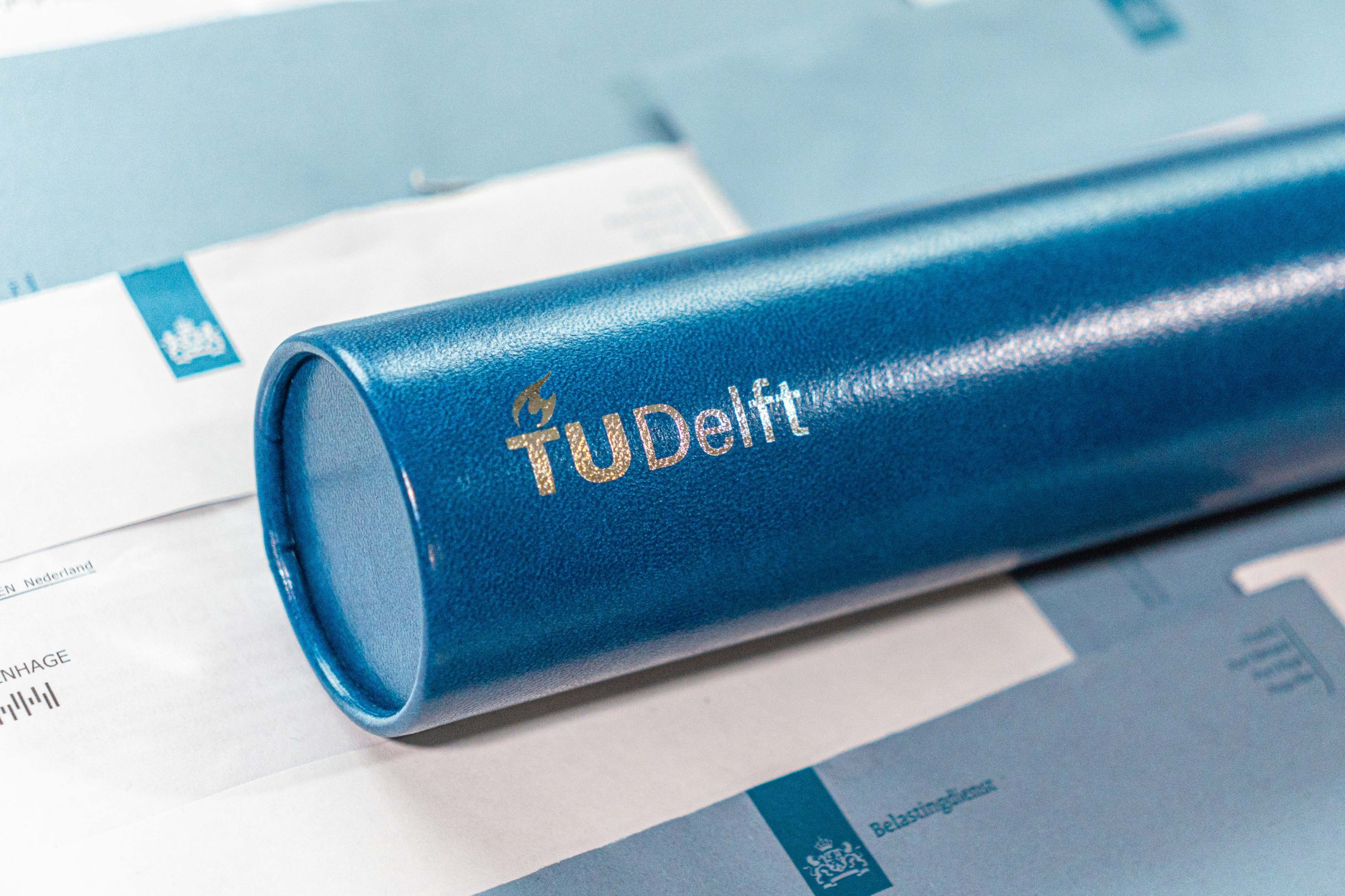The fine for taking a long time to finish their studies is causing a lot of stress, worry and is making doing a degree programme in higher education extra hard for students with disabilities, says Marissa van der Tol, Chair of Student Onbeperkt. “And that while we already are 3-0 behind other students.” She argues for students with a disability being exempted from the ruling.
(Photo: Thijs van Reeuwijk)
The platform for TU Delft students with disabilities thus joins the long list of opponents of the fine from TU Delft and academic institutions across the county. For those who may have missed it: the PVV, BBB, NSC and VVD coalition parties want students to pay an additional EUR 3,000 in tuition fees if they take more than one year longer to finish their bachelor or master programmes. This economising measure is due to take effect in 2026.
‘Terrible’ was Van der Tol’s first thought when she heard about the langstudeerboete (fine for taking a long time to finish studying). “We already have so much on our plate, and then this happens. For students with a disability, this will only create more worry about dealing with more regulations, financial problems, and thus stress and mental health problems.”
Permanent job
Student Onbeperkt represents all students with disabilities at TU Delft. It is a “very diverse group” says Van der Tol. “It includes neurodivergent students who may be highly gifted, autistic or have ADHD, and students with a physical disability.”
‘The education system is simply not inclusive enough for students with a disability’
She compares having a functional impairment to having a permanent job. “It involves so much extra organisation and bureaucracy. We have to think carefully about everything we do, even something like an evening out. We have to think if we can cope and try to think about what we need to be able to do it. And for every change that we need to make, we also have to prove again that the disability is too big to function, while the change often brings benefits to everyone. On top of that, every municipality, institution or educational institution has different rules and amenities. This means a lot of work checking everything, which takes a lot of time.”
Longer time studying
Van der Tol says that students with disabilities take more time to finish their bachelors and masters than other students. “The education system is simply not inclusive enough for students with a disability. This brings problems to almost every student with a disability which automatically delays things in an environment where performance is the goal. For example, I know a student that has so many doctors’ appointments that he can’t always come to lectures, while there is sometimes a strict attendance requirement.”
She thinks that the chance that students with a functional impairment having to pay a langstudeerboete is “enormous”. And this brings additional financial issues. “While we already spend so much money on things like medical costs, medicines, adapted housing and aids that are not reimbursed. Given the cutbacks, this amount has only increased.” A part-time job is also not an option for many students with a functional impairment. “Employers rarely hire us as they think that we are not able to function well enough. In short, the fine will hit us doubly hard.”
Easy to arrange ruling
If the langstudeerboete is introduced, students with a functional impairment should be one of the exempted groups, says Van der Tol. “It must be made as easy to arrange as possible, and not in a way that you have jump through hoops every year.” Van der Tol believes that “not only students who have been diagnosed with a functional impairment should be exempted from the fine, but also those who are in the process of being diagnosed, or who suspect that they have a functional impairment.
Do you have a question or comment about this article?
a.m.debruijn@tudelft.nl


Comments are closed.